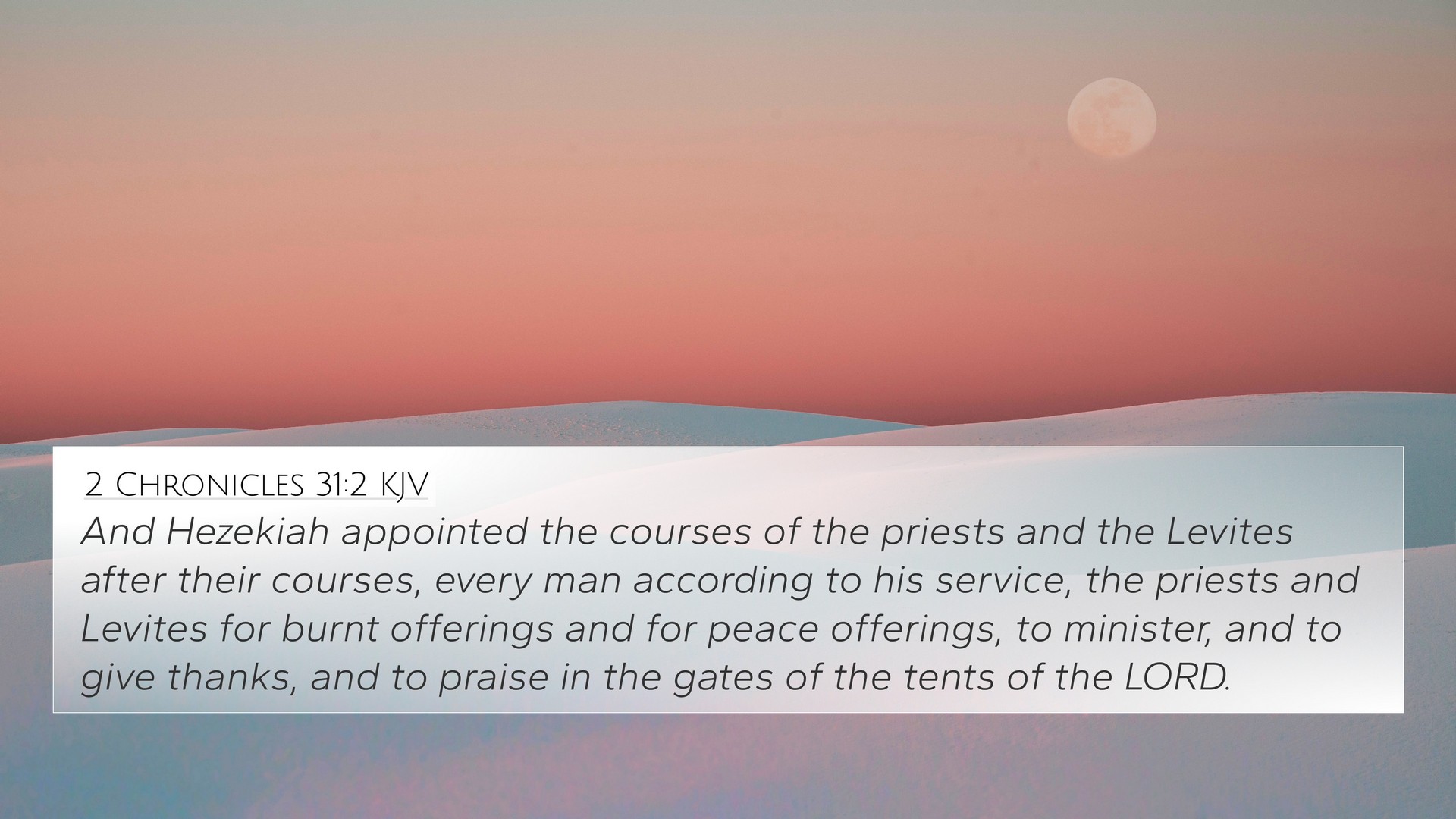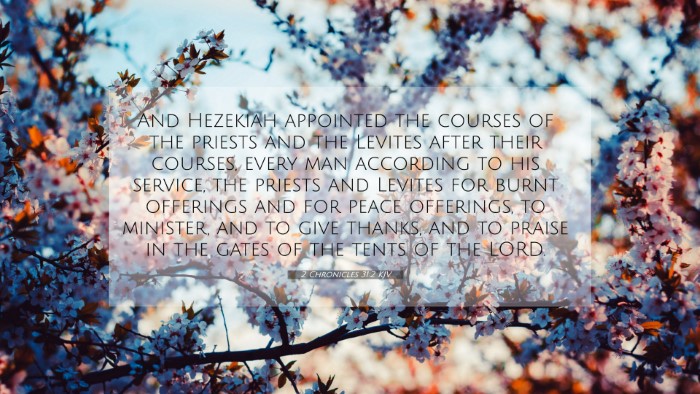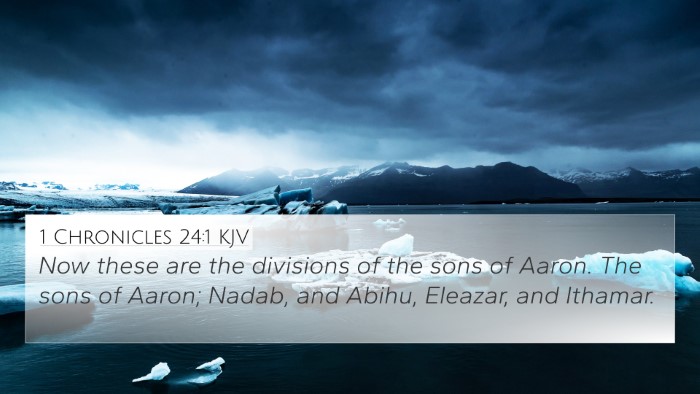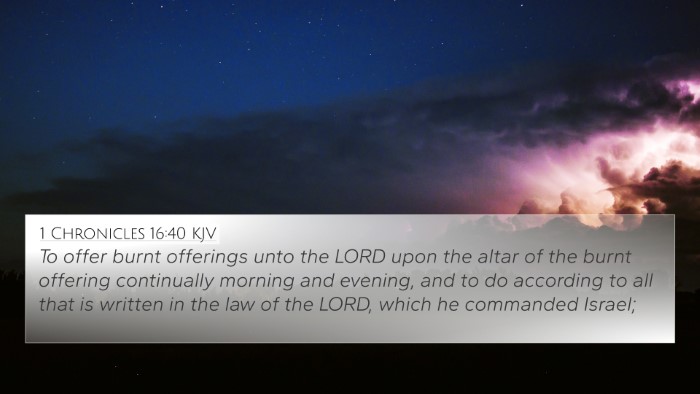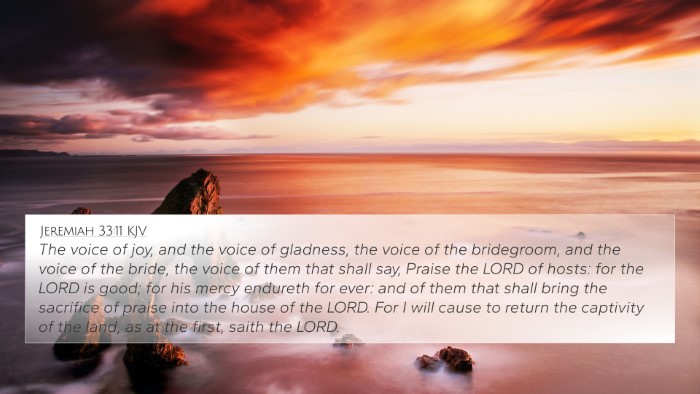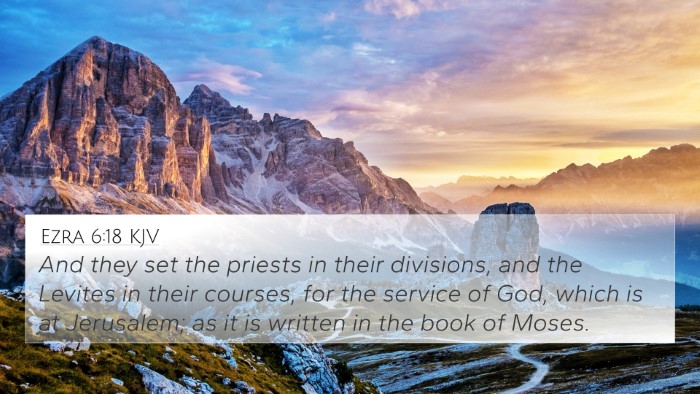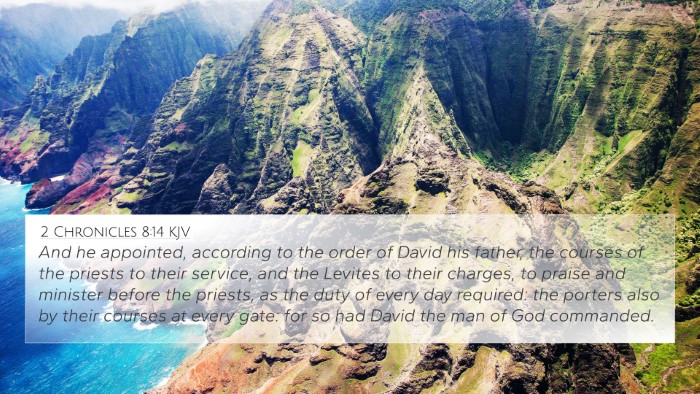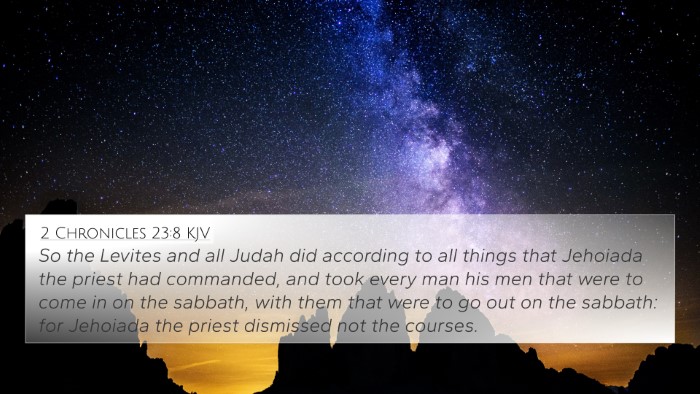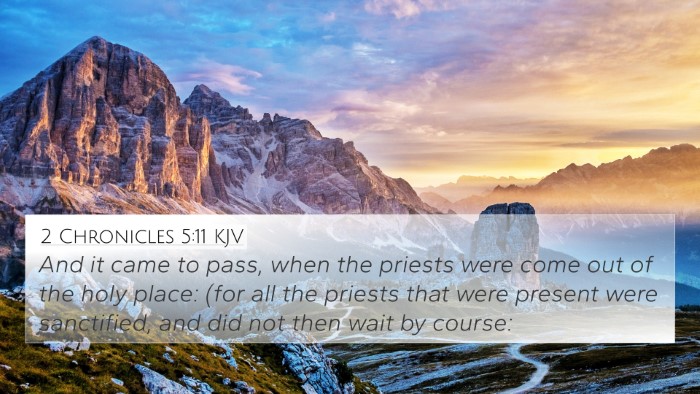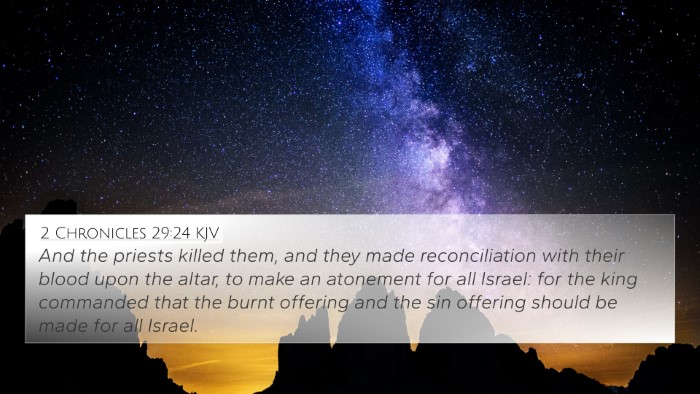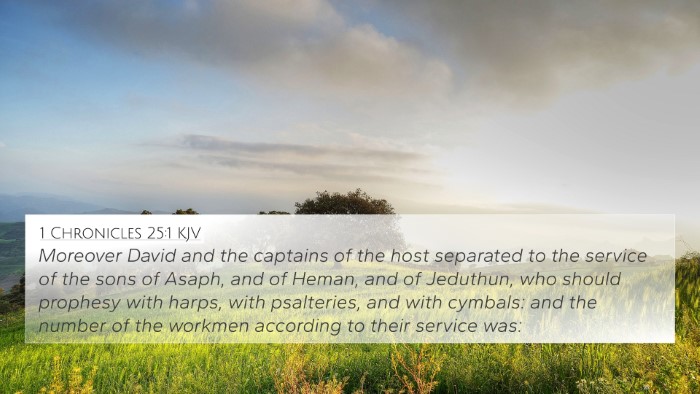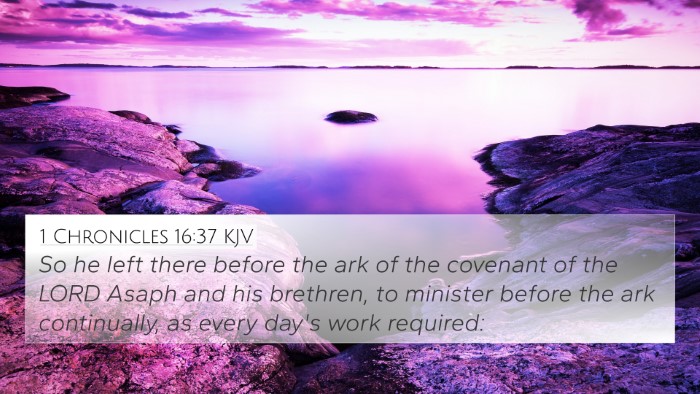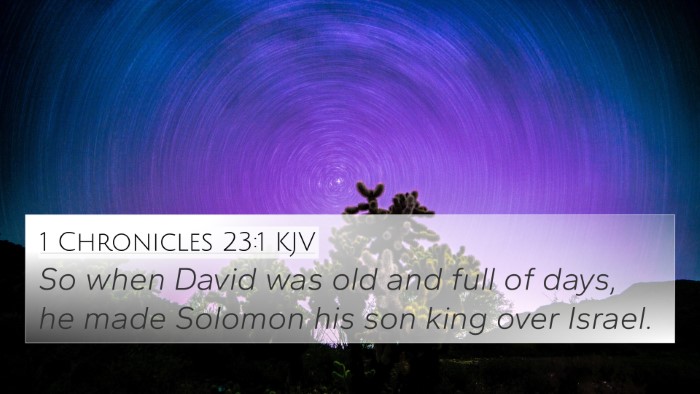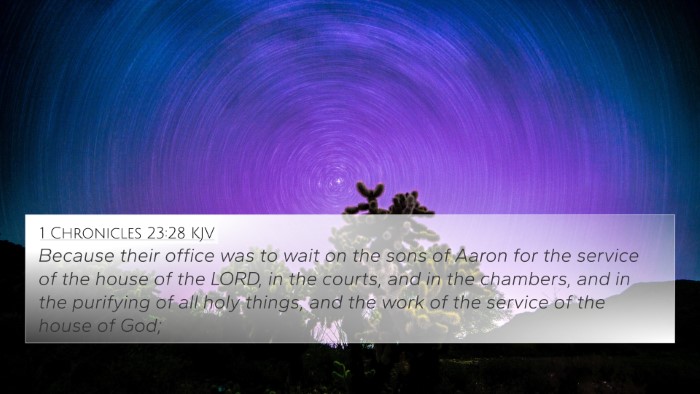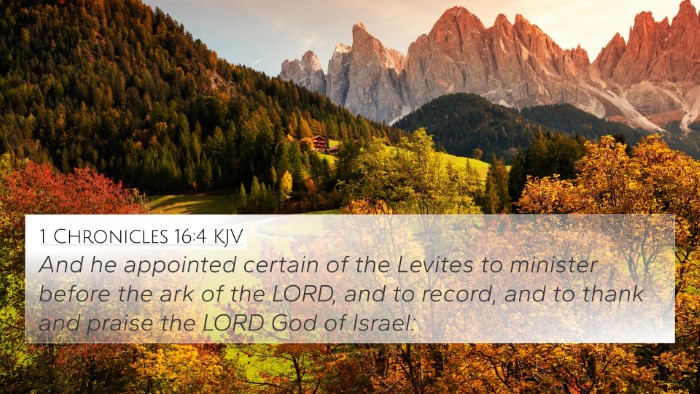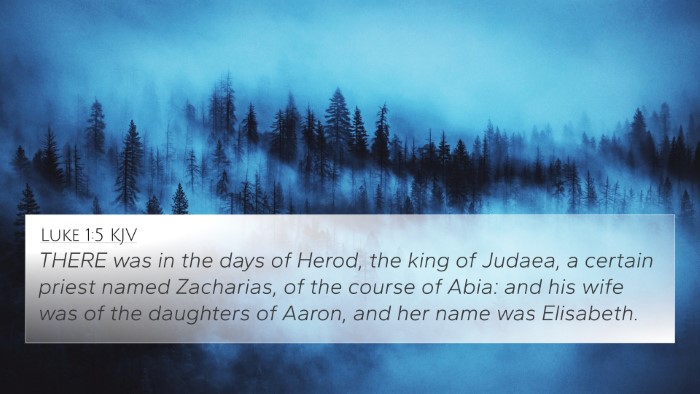Understanding 2 Chronicles 31:2
Verse: And Hezekiah appointed the courses of the priests and the Levites after their courses, every man according to his service, the priests and Levites, for burnt offerings and for peace offerings, to minister, and to give thanks, and to praise in the gates of the tents of the Lord.
Summary of Meaning
This verse is vital in understanding the reformation efforts of King Hezekiah in Judah. After restoring proper worship practices, Hezekiah organized the priests and Levites into specific roles to ensure the continuity of sacrificial offerings and worship.
Insights from Public Domain Commentaries
Matthew Henry's Commentary
Matthew Henry emphasizes the importance of organization in worship. He mentions that Hezekiah not only focused on the restoration of the temple but also on properly appointing individuals based on their God-given roles. This reflects the biblical principle that order and structure are essential in serving God.
- Divine Order: God desires that worship is conducted in an orderly fashion, reflecting the holiness of the service.
- Service Through Roles: Each priest and Levite had a specific duty which illustrates that everyone has a part to play in the worship of God.
Albert Barnes' Notes
Albert Barnes highlights the significance of the roles assigned to the priests and Levites. He notes that Hezekiah recognized the need for continuity in worship practices, which demonstrates his commitment to returning Judah to the covenant relationship with God. Barnes also points out that this organization prefaces the reinstitution of various religious duties and rites that had fallen into neglect.
- Historical Context: Hezekiah’s reforms were crucial for the revival of true worship after a period of Idolatry.
- Priestly Functions: The emphasis on burnt offerings and thank offerings underscores the relationship between worship and gratitude towards God.
Adam Clarke's Commentary
Adam Clarke elaborates on the appointed roles, stressing the priestly lineage that existed in Israel. He discusses the significance of each group of priests and Levites working harmoniously in their responsibilities. Clarke also draws attention to the communal aspect of worship, asserting that worship is not only an individual action but a collective one within the community of Israel.
- Community Worship: There is strength in community worship which reflects the collective faith of the people.
- Role of Thanksgiving: Emphasizing gratitude serves as a vital function of worship, aligning the hearts of the worshippers with the holiness of God.
Bible Cross-References
Several verses relate to 2 Chronicles 31:2, indicating the interconnectedness of biblical themes and the importance of organized worship:
- 1 Chronicles 24:1-19 - The division of priests into courses.
- 2 Kings 12:4-16 - The repairs and organization of the temple service.
- Ezra 3:10-13 - The rebuilding of the temple and the establishment of worship.
- Nehemiah 10:32-39 - The covenant that involved offerings and worship duties.
- Psalm 100:2 - The call to serve the Lord with gladness and joy.
- Hebrews 10:24-25 - The importance of gathering for worship and encouraging one another.
- Romans 12:1 - Presenting our bodies as living sacrifices, a form of service to God.
Thematic Connections
This verse connects various themes in the Bible such as:
- Order and structure in sacred service, indicative of God's nature.
- The essential role of thanksgiving and praise in worship.
- The importance of accountability among leaders within the church.
- The need for a communal approach to reverence and piety.
Summary of Comparative Analysis
In conducting a comparative Bible verse analysis, the themes of worship organization in 2 Chronicles 31:2 resonate with other scriptural references about the priestly duties and community worship. By examining these cross-references, one can better understand the holistic nature of worship prescribed in the Bible and see how it applies in different contexts, both historical and contemporary.
Conclusion
As we delve into the insights provided by various biblical commentaries on 2 Chronicles 31:2, we learn about the critical decisions made by King Hezekiah in restoring temple worship. These insights reveal the importance of structured worship, reiterate the necessity of gratitude, and illustrate the communal aspects of faith. Through cross-referencing related scriptures, readers can develop a comprehensive understanding of how this verse fits within the broader narrative of the Bible.
